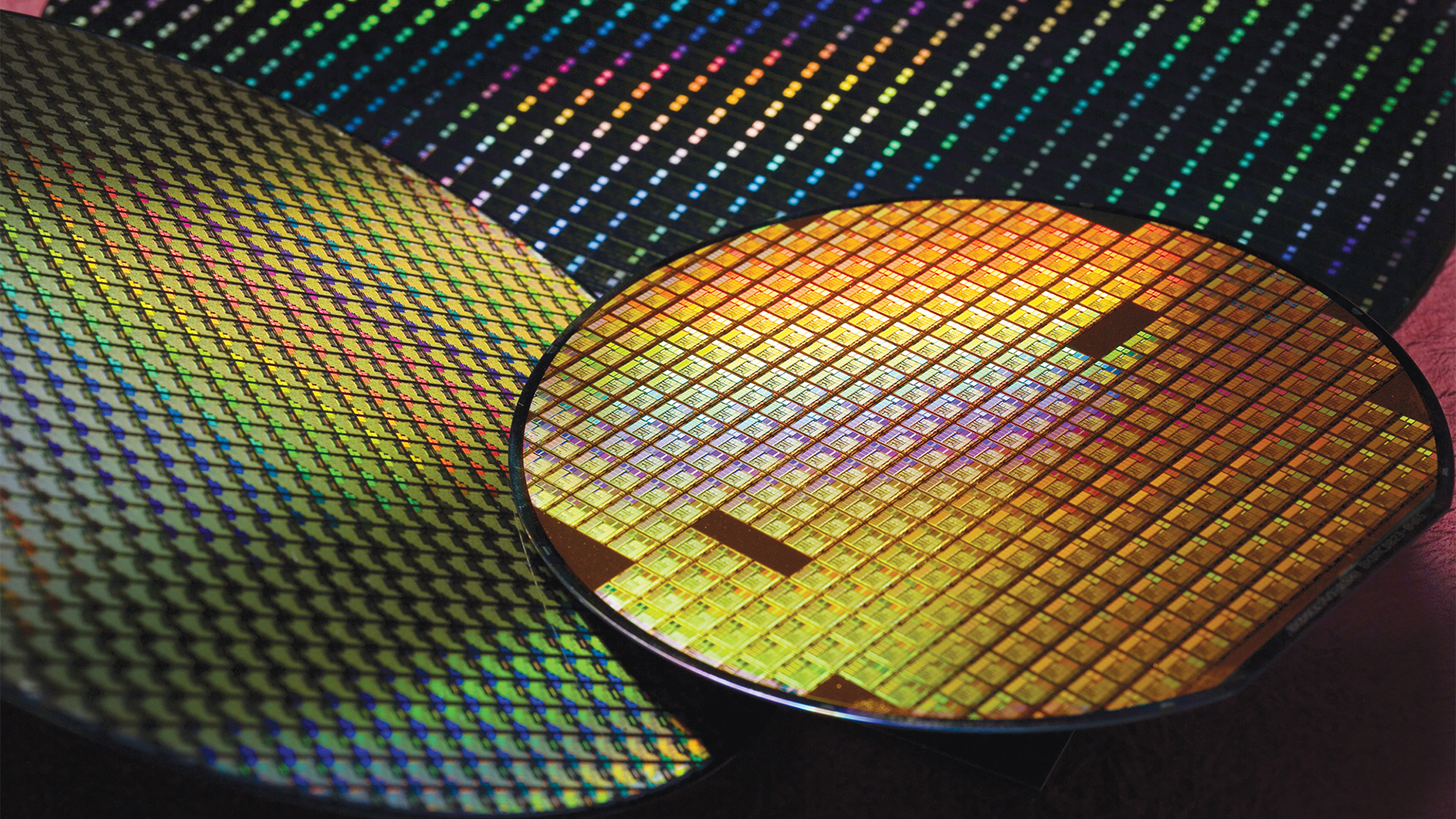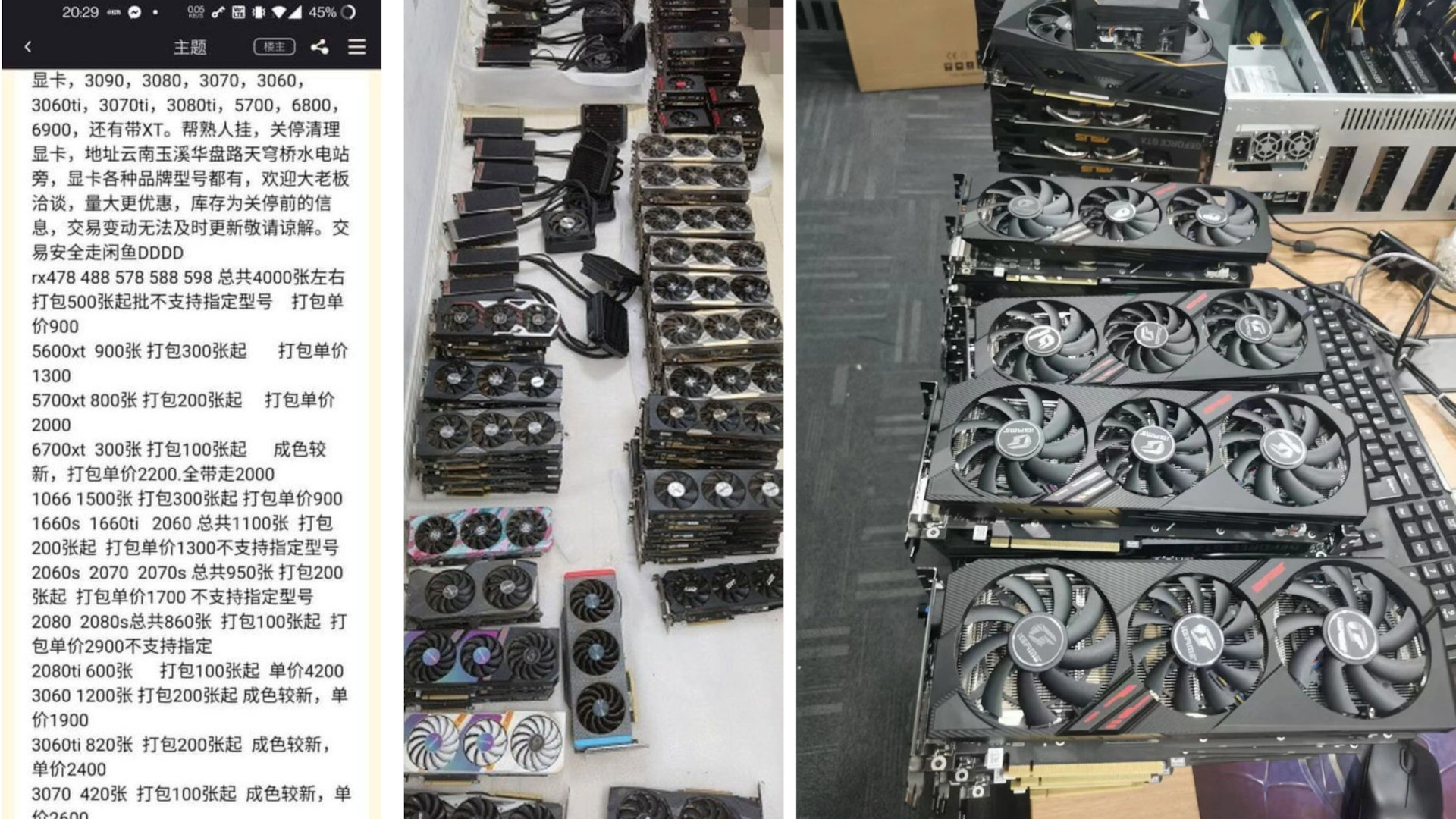Nvidia GeForce RTX 3080 graphics cards could get pricier thanks to Samsung
Bad news if you still don't have a new GPU

Sign up for breaking news, reviews, opinion, top tech deals, and more.
You are now subscribed
Your newsletter sign-up was successful
Samsung announced that it's planning to increase the prices of semiconductor wafers, some of which are used in consumer tech such as Nvidia graphics cards, smartphones and SOCs (system-on-a-chip), in order to finance the expansion of its S5 Fab plant to Pyeongtaek, South Korea.
The Samsung Foundry has experienced issues in the past in regards to hitting manufacturing goals to match demand, so it's hoped that this additional facility in Pyeongtaek will allow for higher production numbers. The downside to this of course, is that someone is going to front the cost of these price hikes, which could see the MSRP of popular GPUs increase.
- AMD vs Nvidia: who makes the best graphics card?
- Nvidia’s RTX 4000 GPUs promise a huge performance leap
- Where to buy RTX 3080 Ti: find stock here
Manufacturing to meet high demand
The current global shortage of silicon chips has been exacerbating GPU prices for months, with scalpers snatching up what little stock is available using bots, and reselling for a huge profit thanks to skyrocketing demand. The situation is incredibly convoluted, but can be boiled down to the fact that technology is expanding into new industries, forcing mobile phone and computing manufacturers to share the available components with everything from cars to fridges.
And of course, many of the best graphics cards have been snapped up en mass over the last year to use in mining rigs for cryptocurrencies such as Ethereum thanks to rapid inflation.
Samsungs decision to expand its production facilities certainly feels like a necessity, and the demand for chips within new industries will only provide further competition for manufacturers already fighting over the current maximum output being churned out, but there's no way to increase production cheaply.
Samsung Foundry's S5 Line is the company's most advanced production facility, using extreme ultraviolet (EUV) lithography to create the company's 4LPE and 5LPP modules. With EUV scanners costing around $120 million – $150 million, expansion is going to be a pricey affair.

This news may be troubling for anyone still trying to buy a GeForce RTX 3080 at a reasonable price, especially as we've been seeing a positive downward trend for graphics cards in recent weeks thanks to cryptomining hotspots like China cracking down on mining operations, causing currencies to tumble.
If you're happy to take a risk and buy a used product, cryptominers in China have been flooding the market with second-hand GPUs over the last few weeks, with listings for GeForce RTX 3060 card being advertised as low as 1,760 yuan (roughly $270/£195/AU$360).
Sign up for breaking news, reviews, opinion, top tech deals, and more.
We have yet to see any real change in the GPU market in the west, but don't start to panic just yet. It's likely that the increased cost for manufactures won't be immediately implemented. The assumption is that these additional costs will be put onto individual customers by way of Nvidia and smartphone manufacturers hiking the price of consumer hardware, but there is always a chance that the companies have ways of swallowing the extra financial burden.
Analysis: We're in this for the long run
While we can be forever optimistic that truly affordable graphics cards will make a comeback, this seems like an unlikely eventuality. Regardless of the state of cryptomining, chip shortages are probably not going away any time soon thanks to increasing demand from everything from smartphones to kitchen appliances, especially with wafer manufacturers are already running at full capacity.
There are current predictions that the market is going to remain in its inflated state until at least late 2022, but don't treat that estimate as gospel. As technology continues to develop, we could see even more fresh faces queueing up for chips so it's better to curb your expectations slightly.
Samsung is technically the only contract maker of semiconductors to have officially announced wafer price hikes for its customers, but TSMC did state earlier this year that discounts for large customers such as AMD and Apple will be eliminated. If these large tech manufacturers have to start paying more then it's likely that we, the customers, will end up covering the additional costs.
- How to build a PC: a step-by-step guide to building the best PC
- Track the best graphics card prices for July 2021
Via WCCFTech

Jess is a former TechRadar Computing writer, where she covered all aspects of Mac and PC hardware, including PC gaming and peripherals. She has been interviewed as an industry expert for the BBC, and while her educational background was in prosthetics and model-making, her true love is in tech and she has built numerous desktop computers over the last 10 years for gaming and content creation. Jess is now a journalist at The Verge.